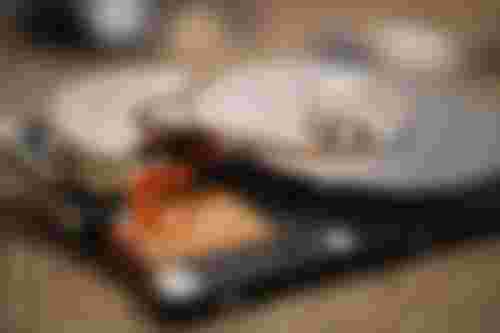Learning the basics of computer science lesson XV
How happy we may have been having celebrated the worthy death of our Lord Jesus Christ on the 25th of this month in the midst of fun and merry making and as such, I'd like to bring to us the next part of our computer lesson class being:
The Hard Disk Drive (HDD)

This is commonly referred to as a hard drive, hard disk or fixed disk drive and it's a no volatile storage device which stores digitally encoded data on rapidly rotating platters with magnetic surfaces.
Seriously speaking, a drive refers to a device distinct from its medium such as the tape drive and its tape or a floppy disk drive and its floppy disk.
Early HDDs had removable media which perhaps makes it today, a sealed unit except for a filtered vent hole that enables an equalizing of air pressure or its removal.
The platters are spun on very high speed while the information that is written on a platter as it rotates past the devices are called the read&write heads which are operated very close over the magnetic surface and it is used to detect and modify the magnetization of the material immidiately under it.
There is usually one head for each magnetic platter surface on the spindle that is well mounted on a common arm. The actuator arm then moves the heads on an arc across the platters as they spin, thereby allowing each head access almost the entire surface of the platter as it spins.
The arm is moved using a voice coil actuator or in some older designs, a motor.
The older drives read the data on the platter by sensing the rate of change of the magnetism in the head which have small could and works much like a magnetic tape playback which is although not in contact with the recording surface.
The HDDs are kept from contacting the platter surface by the air that is extremely closer to the platter; that air moves at, or close to the platter speed.
The record and the playback heads are mounted on a block called slider and the surface next to the platter is shaped to keep it just barely out of contact.
Early HDDs makes use of an electromagnet both to generate this field and to read the data by using an electomagnetic induction, while the later versions of inductive heads included Metal In Gap(MIG) heads and thin film heads.
In today's heads, the read and write elements are separate but in close proximity on the head portion of an actuator arm.
The read element is typically a magneto-resistive while the write element is typically a thin-film inductive.
In mordern drives, the small size of the magnetic regions creates the danger that their magnetic state might be lost due to some thermal effects, but to counter this, the platters are coated with two parrallel magnetic layers that are separated by a 3-atom-thick layer of the non magnetic element ruthenium, and the two layers are magnetized in opposite orientation thus helping to reinforce each other very well when they are needed very well to do so.
Care of the hard disk drive.
They have fewer precautions since they are more protected by being sealed in air tight cases but when damage occurs, it is more serious than what we may think of or what we may expect.
The larger amount of data can be lost when the hard disk is damaged and they are much more expensive than floppies.
Hard disks can have problems from magnetic fields and the heat like floppies do, but these are usually seen in some very very rare occasions. My most problems occur when the read-write head damages the metal disk by hitting or even touching it as a crash will occur.
Hence, care must be taken to keep the read-write head where it should be, which is just barely above the hard disk but never ever by any chance whatsoever touching it at all if such a damage must not occur at anytime.
Another thing to avoid is that of turning the computer off and quickly back on before spinning has stopped could cause even a far reaching and a greater damage to the hard disk.
Tomorrow by God's grace, we shall be looking into all the aspects of the various ways to care for our Hard disks if we must have the pleasure of enjoying using them for long.
Hope you abstained from contracting covid19 today by observing all its protocols which are:
Staying some 6metres apart
Washing your hands regularly after using public facilities
Sneezing directing into a tissue paper or your elbow where a tissue paper is absented
Avouding too much gathering of many persons and many more?
#liveresponsibly#observeallcovid19protocolssoasto#stayalive.
Image credit:unsplash.com.

Thank you for your article about computer hard disk, it is very educative and instructive, most especially for computer users who must have been spending much on hard disk replacement due to damages that could have been avoided. Keep sharing more.